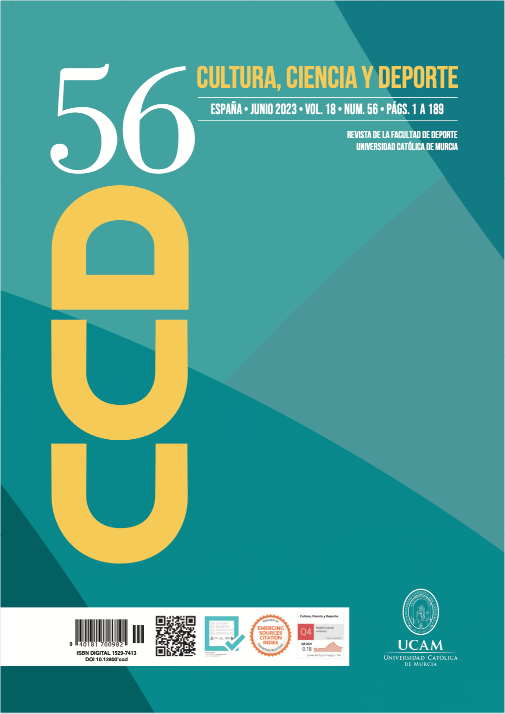Motivational effects after applying permanent and rotating roles through Sport Education model in Physical Education
DOI:
https://doi.org/10.12800/ccd.v18i56.1177Keywords:
Educación física, modelos pedagógicos, motivación, estudiantes en riesgo.Abstract
Introduction: Most of the Sport Education model’ nonnegotiable features have been explored. Research focused
on roles (e.g., student-coach) has examined its specific learning processes, but there is scant evidence about its
rotation/non-rotation dynamics. Purpose: Applying the Sport Education model, this study assesses the impact of
roles’ dynamics (permanent or rotation) on adolescents’ motivational variables (achievement goals, basic
psychological needs and motivational regulations) and friendship goals, in a socially vulnerable context. Methods: A
quasi-experimental, simple crossover design with repeated measures (PreT-Post1-Post2) is carried out. Following Sport
Education features, two invasion games-units (12 lessons each; basketball and floorball, respectively) were applied.
96 students (boys, n = 53, Mage = 12.13; SD = .79; girls, n = 43, Mage = 12.23; SD = .87) belonged to five intact groups in
grade 7 from a high-school take part in this study. These groups are distributed on two experimental groups (GE-1,
n = 43; and GE-2, n = 53). Data is collected by questionnaires (students’ perspective) and semi-structured interviews
(teacher’s perspective). Results: Overall, permanent roles have a significant impact on achievement goals (e.g.,
increase on self-approach) and friendship goals, whereas rotating roles only produces improvements on amotivation.
Taking sex into account, both permanent and rotating roles cause improvements on boys’ novelty and competence,
respectively. Likewise, both dynamics provoke adverse effects, more substantial on girls. In this way, permanent
roles evoke significant increase on girls’ external and introjected regulations, whereas rotating roles lead to both
lower intrinsic motivation and higher amotivation on girls. Conclusions: Given the positive impact regardless of gender,
taking permanent roles seems to be more appropriate when dealing with socially vulnerable contexts as well as
students with no experience with Sport Education model. Content selection and social system are thought to be two
plausible explanations for adverse effects.
Published
How to Cite
Issue
Section
License
Copyright (c) 2023 Creative Commons Attribution License

This work is licensed under a Creative Commons Attribution-NonCommercial-ShareAlike 4.0 International License.
The authors who publish in this journal agree with the following terms:
- The authors retain the copyright and guarantee the journal the right to be the first publication of the work as well as licensed under a Creative Commons Attribution License that allows others to share the work with recognition of the authorship of the work and the initial publication in this journal.















